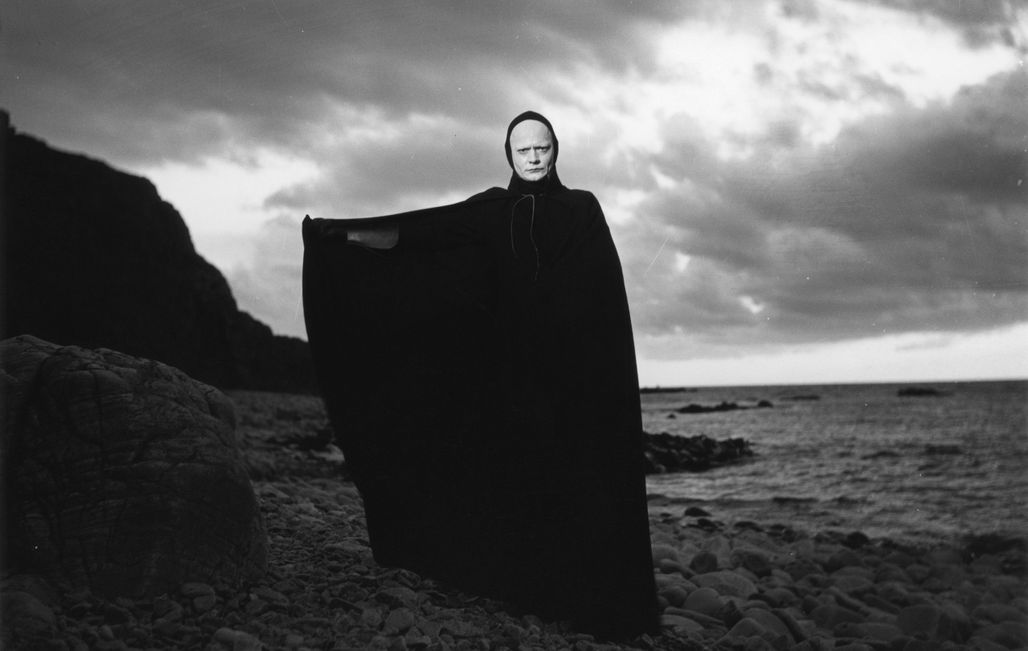
The Seventh Seal, death according to Ingmar Bergman

To mark its restoration, the iconic Det Sjunde Inseglet (The Seventh Seal, 1957) is being screened in Cannes Classics in homage to Ingmar Bergman. The writer and director Stig Björkman talks about the great classic – a theatre for the encounter between the knight and Death.
Is The Seventh Seal Bergman's most iconic movie?
Probably. So iconic that images from the film have been used on stamps, both in Sweden and elsewhere! And the scene between Death and the Knight by the sea has been copied and/or parodied many times, not least by one of Bergman’s most ardent admirers, Woody Allen.
But seriously, one can of course see the film as one of Bergman’s more ambitious and serious works. It has an austerity which is overwhelming. The seal of the title refers to a passage in the Book of Revelation, which begins with the words: "And when the Lamb had opened the seventh seal, there was a silence in heaven about the space of half an hour." This quote refers to God’s silence, which is one of the major themes not only in this film, but also in Bergman’s famous trilogy, Through a Glass Darkly (1961), Winter Light (1962) and The Silence (1963).
But this doesn’t exclude passages of sheer and idyllic joyfulness in the film. Like the scenes with the jester and his family. That is the positive stance of this drama. Art will survive!
The propose is the fear of death?
Like most artists Bergman didn’t start a film or get the idea for a film because he wanted to make a statement about something. He was a very clever director, of course, and also a highly practical man. So, I think there are two quite ordinary reasons why he chose and felt that he could make The Seventh Seal.
Number one: the prize he received in Cannes for Smiles of a Summer Night, which immediately made his work known not only in France but in many other countries outside Sweden. And because of that he dared to present this rather expensive project to his production company, Svensk Filmindustri.
The other – and more simple – reason was that Bergman at this time was working as a theatre director in Malmö, and he had to find a play for the young actors at the theatre. So he wrote Trämålning (A Painting on Wood) for them. It had basically the same story as The Seventh Seal. And then he turned this play into The Seventh Seal, an ideal film project to serve as a summer job for the actors he had been working with at the theatre.
So, I wouldn’t say that the threat of death was something particularly alarming for Bergman at that time. He was gloriously alive and kicking. He made one more film that year and staged four or five theatre productions. Death is definitely a very present figure in the film, but Death appeared in other films of his as well, like Summer Interlude and Face to Face as a premonition or a threat – and then in the form of elderly women!
Is it your favorite Bergman?
The Seventh Seal is not my favorite Ingmar Bergman film, even if I admire it for many reasons, not least the purely cinematographic aspect.
The Seventh Seal had, of course, other values and importance for its creator. “The film is about the fear of death. And it freed me from my own fear of death”, Bergman wrote. “The Seventh Seal has always been close to my heart, I can’t really say why. It’s not a perfect work in any way. The production is scatterbrained in many ways, and you can see it was made in haste. But I think the film is un-neurotic, vital and strong-willed. And it treats its theme with lust and passion.”


